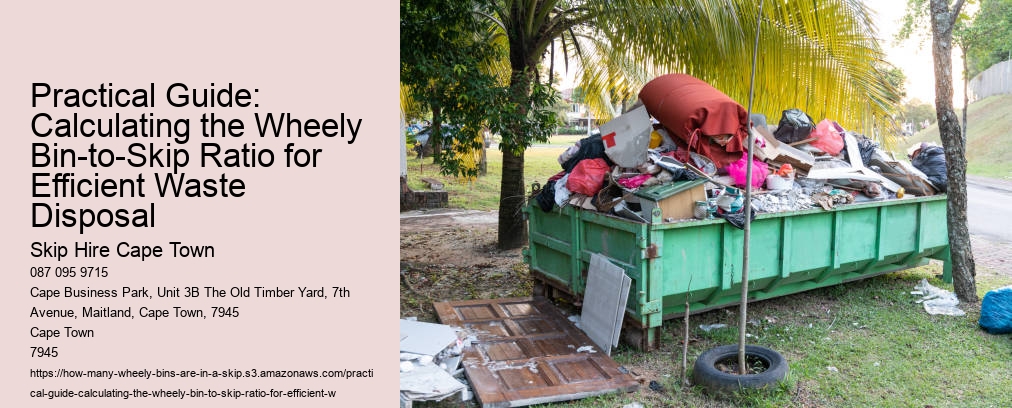Calculating the wheely bin-to-skip ratio for efficient waste disposal can seem daunting, but it doesn't have to be! This practical guide will provide you with some helpful tips and tricks in order to ensure your waste management system runs smoothly.
First of all, it's important to understand that the bin-to-skip ratio varies depending on an array of factors such as the type of garbage being disposed and how much is generated each day. Therefore, it's critical that you take time to assess your specific waste situation. (Consider having a professional come in to provide a consultation if needed.) Once you have this information, you can begin determining the optimal ratio for your needs.
For example, if most of your waste is organic or recyclable materials then smaller bins are likely sufficient. On the other hand, if there's a lot of non-recyclables like plastic packaging then larger skips may be necessary. Appropriate sizing is key because too small containers may not hold enough while too large ones may be overkill and create more work when they need to be emptied!
Another thing to consider when calculating the bin-to-skip ratio is frequency of collection - particularly when dealing with higher volume waste streams. For instance, if you're producing large amounts on a daily basis then weekly pickups won't cut it; instead opt for at least biweekly or even daily service in order to keep up with demand and prevent any overflowing issues.
Furthermore, don't forget about storage space constraints either - both indoors and outdoors areas should be taken into account when coming up with an effective solution. Additionally, be sure to factor in any local regulations governing skip sizes so you don't run into any problems down the line!
Overall, determining the perfect bin-to-skip ratio for efficient waste disposal takes some research (and potentially expert advice) but once set up correctly it should run relatively smoothly - allowing you peace of mind knowing that everything is running optimally! Furthermore transition phrase: By taking these steps before committing to any particular plan it'll help guarantee that your waste management system operates as efficiently as possible!
Calculating Capacity: Determining the Number of Wheely Bins that Fit in a Skip
